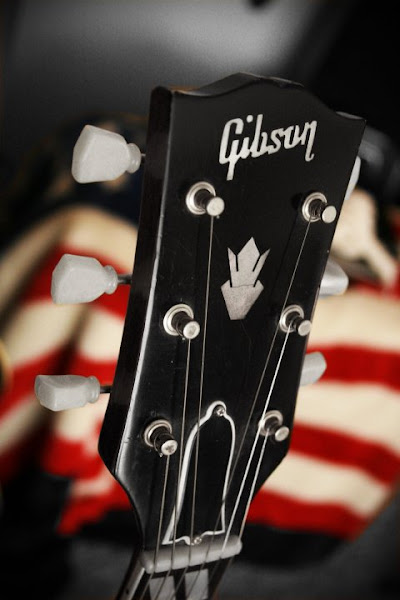By J. Bryan Wasson
Bill Donald was our next door neighbor in the Potosi community. Potosi is located south of Abilene, Texas. His farming operation had been mostly grain crops. He also previously had a small cow/calf operation on his farm.
Back in the late 50s and early 60s the U.S. Department of Agriculture had a program called the Soil Bank. The purpose of this program was to reduce a surplus of farm products. Farmers were paid for not planting any crops or not running livestock on acreage placed in the program. Crops or livestock on land in this program was a violation of Federal law. Bill had placed his entire farm in this program.
The “Blue Bug Inn” was a domino hall located at the cross roads at the intersection of Potosi Road and what is now known as FM 1750. The “Blue Bug Inn” derived its name from the fact that it started life as a chicken house. Each day area farmers dropped by from time to time to play a game or two of dominos. Some retirees spent most of each day there playing dominos and swapping stories. My grandfather, Jess Sterling was among the retired men who spent most of each day at the domino hall. Due to the fact that Bill had placed his entire farm in the soil bank, he spent a large part of each day in the activities of the domino hall.
These elderly men enjoyed a good joke. They started messing with Bill’s mind by telling untrue tales of extremely expensive penalties required of non existent violators of prohibited use of land bank acreage. They convinced Bill that there was a Federal Agent lurking behind ever bush. They also convinced him that ever airplane that flew over was a Government aircraft, looking for illegal livestock or crops on land in this program.
My dad and I had previously been partners in some cattle, but at the time there was nothing in our pasture but horses. I was a member of the Abilene Police Department. At this time I was working the midnight shift and therefore sleeping in the day time. At about 2:00PM one day, I was rudely awakened by the ringing of the telephone. It was Bill Donald. He was spooked because he had observed some calves in his pasture. He excitedly told me “your calves are in my pasture” and that he wanted me to get them out immediately. I was angry and immediately hung up the telephone without saying anything.
By the time I went to work that night, I was still angry about having my sleep interrupted. I went about my duties, but remained out of sorts. At 2:00AM, I had a flash of genius. I telephoned Bill Donald. After about 10 rings of the phone, Bill sleepily answered the phone with, “hello.” I immediately harshly responded, “Bill. Them ain’t my calves!” I immediately hung up. I don’t think Bill ever spoke to me again.
01-04-10,JBW
Back in the late 50s and early 60s the U.S. Department of Agriculture had a program called the Soil Bank. The purpose of this program was to reduce a surplus of farm products. Farmers were paid for not planting any crops or not running livestock on acreage placed in the program. Crops or livestock on land in this program was a violation of Federal law. Bill had placed his entire farm in this program.
The “Blue Bug Inn” was a domino hall located at the cross roads at the intersection of Potosi Road and what is now known as FM 1750. The “Blue Bug Inn” derived its name from the fact that it started life as a chicken house. Each day area farmers dropped by from time to time to play a game or two of dominos. Some retirees spent most of each day there playing dominos and swapping stories. My grandfather, Jess Sterling was among the retired men who spent most of each day at the domino hall. Due to the fact that Bill had placed his entire farm in the soil bank, he spent a large part of each day in the activities of the domino hall.
These elderly men enjoyed a good joke. They started messing with Bill’s mind by telling untrue tales of extremely expensive penalties required of non existent violators of prohibited use of land bank acreage. They convinced Bill that there was a Federal Agent lurking behind ever bush. They also convinced him that ever airplane that flew over was a Government aircraft, looking for illegal livestock or crops on land in this program.
My dad and I had previously been partners in some cattle, but at the time there was nothing in our pasture but horses. I was a member of the Abilene Police Department. At this time I was working the midnight shift and therefore sleeping in the day time. At about 2:00PM one day, I was rudely awakened by the ringing of the telephone. It was Bill Donald. He was spooked because he had observed some calves in his pasture. He excitedly told me “your calves are in my pasture” and that he wanted me to get them out immediately. I was angry and immediately hung up the telephone without saying anything.
By the time I went to work that night, I was still angry about having my sleep interrupted. I went about my duties, but remained out of sorts. At 2:00AM, I had a flash of genius. I telephoned Bill Donald. After about 10 rings of the phone, Bill sleepily answered the phone with, “hello.” I immediately harshly responded, “Bill. Them ain’t my calves!” I immediately hung up. I don’t think Bill ever spoke to me again.
01-04-10,JBW
Note: This story has previously appeared on the pages of The Brayer Magazine.



